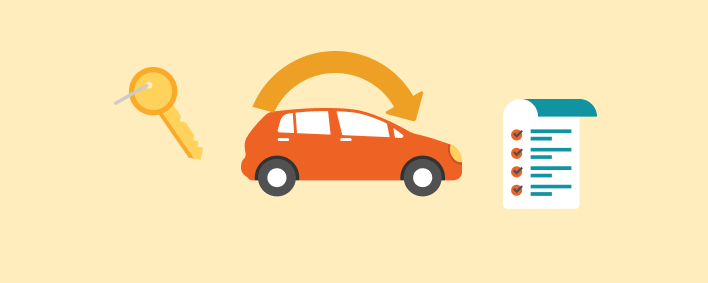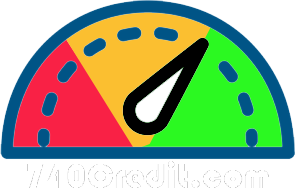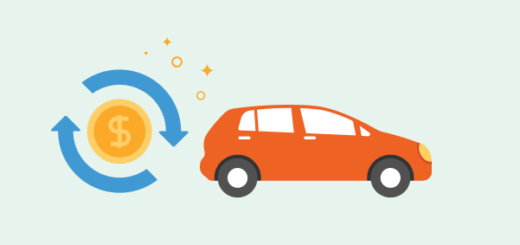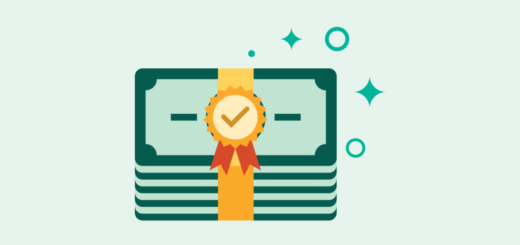Should You Buy or Lease a Car? Pros and Cons of Each
Our goal is to give you the tools and confidence you need to improve your finances. Although we receive compensation from our partner lenders, whom we will always identify, all opinions are our own. By refinancing your mortgage, total finance charges may be higher over the life of the loan.
Credible Operations, Inc. NMLS # 1681276, is referred to here as “Credible.”
Shopping for a car is exciting, and there’s a lot to consider — including whether you’re going to finance or lease the vehicle.
When deciding whether to buy or lease a car, you’ll need to consider a few main factors, including the purpose of the vehicle, the number of miles you expect to drive, and how much you want your monthly payments to be.
Here’s what you need to know about the difference between leasing and buying and how to decide which option is right for you:
Leasing a car
A car lease is a contract between you and the lessor (the company that owns the car). You make monthly payments, and in exchange, you have the right to drive the vehicle for a fixed period — usually two or three years.
Car dealerships set up most leases. When you decide to lease, you pay the dealer an upfront amount to drive it off the lot. This initial fee may cover the first month’s payment, as well as taxes and fees. From there, you’ll make monthly payments for the life of the lease.
Most lease agreements limit the number of miles you can drive the car — usually 12,000 to 15,000 miles per year. In some cases, you may be able to negotiate a higher mileage allowance for an additional fee.
Pros of leasing a car
Here are some benefits of leasing:
- Smaller down payment: Leasing a car usually requires little to no down payment. On most car leases, the down payment ranges from $0 to $3,000. The average down payment on a car loan, on the other hand, is just over 11% of the car’s value, according to Edmunds data.
- Lower monthly payments: Leasing a car tends to have lower monthly payments because you’re only paying for depreciation — the amount by which the vehicle’s value drops while you’re driving it — plus interest, taxes, and fees.
- Manufacturer warranties: The cars available to lease are brand new and still covered by the manufacturer’s warranty, which usually lasts for three years or 36,000 miles, whichever comes first. The dealership wants you to return the car in excellent condition, so your lease agreement may also cover basic maintenance, such as oil changes.
Cons of leasing a car
Here are some drawbacks of leasing:
- Mileage limitations: Leases typically have an annual mileage restriction — usually no more than 15,000 miles. If you go over this limit, you’ll have to pay a fee for each additional mile. Most leases charge around 15 to 20 cents per mile above the mileage allowance outlined in your contract, so exceeding that limit can be expensive.
- Additional fees: In addition to mileage overage fees, the lessor might hit you with additional wear-and-tear costs. While some wear and tear is normal and allowable, things like large dents or scratches, a chipped windshield, or ripped upholstery can result in extra charges.
- You don’t own the vehicle: Unless you choose a lease buyout — which is expensive and usually involves additional financing — you’ll have to continue making payments as long as you have the car. You’re essentially committing to never-ending car payments if you stay in the leasing cycle.
- Insurance may be more expensive: When you lease a car, you have to comply with insurance requirements set by your lender or leasing company. They typically require you to carry at least the state minimums for liability insurance. They’ll also require comprehensive and collision coverage, which covers damage to the vehicle due to an accident or non-accident loss, such as theft or hail. You may also want to purchase GAP insurance, which will pay off the balance of your lease if you total the vehicle. On some leases, GAP coverage will be rolled into your monthly payments.
Check out: Auto Loans for All Credit Types
Is leasing a car right for me?
Leasing a car isn’t the right move if you plan on driving the same car for more than three years or tend to drive a lot. If that sounds like you, it’s probably less expensive to buy a car. While your monthly payments might be higher initially, you’ll eventually pay off the loan and the car will be yours to drive, payment-free, as long as you like.
Leasing can be a good option if you want to drive a new vehicle every few years without a huge upfront financial commitment. This is because your upfront costs and monthly payments will be lower, and the manufacturer’s warranty should cover the car.
You might even be able to get a more comfortable or luxurious car with a lease than you’d normally be able to afford. But keep in mind the fees, mileage restrictions, and excess wear-and-tear charges. If you drive frequently or are hard on your vehicles, leasing might not be the best way to get into a new car.
Buying a car
Buying a car with a loan is pretty straightforward. You’ll borrow money from a bank, credit union, or other lender and make monthly payments for a fixed period of time.
The initial down payment and monthly payments will be higher compared to leasing the same vehicle. But the vehicle will officially be yours once you pay off the loan.
If you want to make buying a car more affordable, consider bypassing the new-car lot. You may be able to find a used or certified pre-owned vehicle that’s just a few years old for a lower price than buying new.
Ready to find your personal loan?
Credible makes it easy to find the right loan for you.
Find My Rate
Checking rates won’t affect your credit
Pros of buying a car
Here are some benefits of buying a car:
- No mileage limits: You don’t have to worry about mileage limits or fees. Drive as much as you want!
- No extra fees: Since the car will be yours, there are no extra fees when it comes to normal wear and tear. You can treat it as nicely or as poorly as you want.
- Freedom to sell or trade in the car: When you lease a car, you’re under contract to continue making payments until the lease term ends. Getting out of a lease contract can be difficult and expensive. When you buy a car, you can choose to sell or trade in your car at any time.
Check out: How to Get a Personal Loan
Cons of buying a car
Here are some drawbacks of buying a car:
- Larger initial down payment: You should plan on making a down payment of at least 10% of the car’s purchase price. While it’s possible to buy a car without a down payment, the finance company will usually charge a higher interest rate, which will cost you more in the long run.
- Higher monthly payments: With a car loan, you’ll typically pay more each month compared to leasing. The average new lease payment in 2021 was $531, compared to $644 for new auto loan payments, according to Experian’s State of the Automotive Finance Market report.
- Maintenance costs: Leased vehicles are usually covered by the manufacturer’s warranty, and the dealership may even perform free oil changes and other basic maintenance services. But when you buy a car, you’re responsible for ongoing maintenance and any major repairs outside of the manufacturer’s warranty.
Is buying a car right for me?
While buying a car is a little more expensive, it does give you more control over your situation. You don’t have to worry about mileage, the condition of your car, or being stuck leasing a car you no longer want.
If cost is your primary concern, remember that you have many options for financing a new-car purchase, including:
- Vehicle loan from a bank or credit union: Consider getting pre-approved for a car loan with several banks and your local credit union. Then you can compare rates and find the best offer for you. Keep in mind that banks may advertise low rates on car loans, but those offers are usually reserved for borrowers with excellent credit. Credit unions typically offer lower rates than banks do, but you have to be a member to apply. Banks and credit unions may also limit your options — some won’t finance cars over a certain age or odometer reading.
- Dealer financing: Car dealerships typically offer financing on site. The dealership may have a relationship with a bank or lending institution or have its own in-house financing company. This makes financing convenient because you can apply for and finalize your loan as soon as you decide which car you want to buy. But if you don’t do your own comparison shopping before visiting the dealership, you could wind up paying a higher interest rate than if you’d shopped around.
- Personal loan to buy a car: You can use a personal loan to buy a car. But interest rates on personal loans tend to be higher than those offered by banks, credit unions, or in-house dealership financing companies. Still, it might make sense to use a personal loan if you’re buying an older vehicle or one from a private seller that needs work. In this case, other lenders might not be willing to provide an auto loan for the purchase, so a personal loan may be your only financing option.
The personal loan companies in the table below compete for your business through Credible. You can request rates from all of these partner lenders by filling out just one form (instead of one form for each) and without affecting your credit score.
| Lender | Fixed rates | Loan amounts |
|---|---|---|
 |
9.95% – 35.99% APR | $2,000 to $35,000** |
|
||
 |
7.29% – 17.99% APR | $10,000 to $50,000 |
|
||
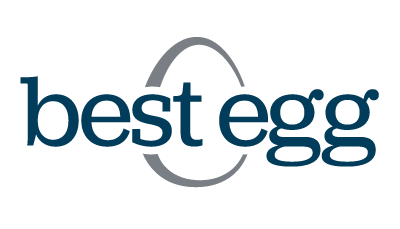 |
4.99% – 35.99% APR | $5,000 to $50,000 |
|
||
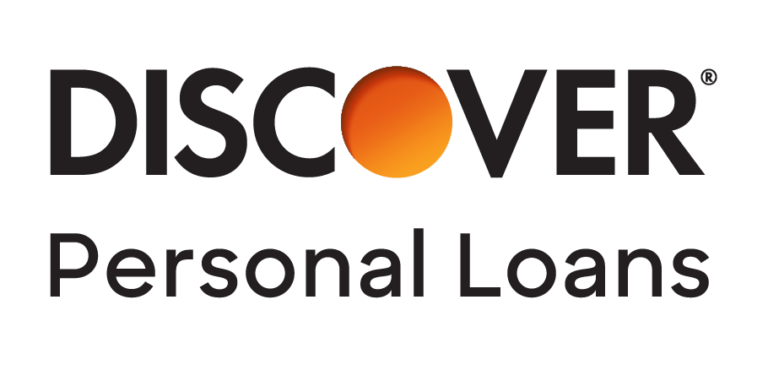 |
5.99% – 24.99% APR | $2,500 to $35,000 |
|
||
 |
7.99% – 29.99% APR | $7,500 to $50,000 |
|
||
 |
5.99% – 24.99% APR | $5,000 to $40,000 |
|
||
 |
7.04% – 35.89% APR | $1,000 to $40,000 |
|
||
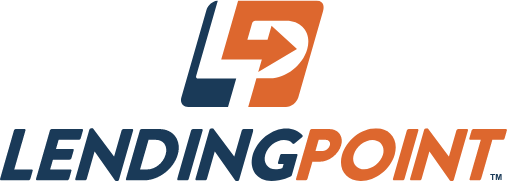 |
7.99% – 35.99% APR | $2,000 to $36,500 |
|
||
 |
3.99% – 19.99% APR | $5,000 to $100,000 |
|
||
| 6.99% – 19.99% APR1 | $3,500 to $40,0002 | |
|
||
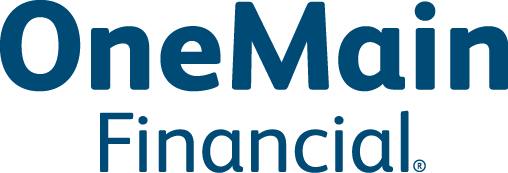 |
18.0% – 35.99% APR | $1,500 to $20,000 |
|
||
 |
5.49% – 17.99% APR | $600 to $50,000 (depending on loan term) |
|
||
 |
7.95% – 35.99% APR | $2,000 to $40,000 |
|
||
 |
6.99% – 22.28% APR10 | $5,000 to $100,000 |
|
||
 |
8.93% – 35.93% APR7 | $1,000 to $20,000 |
|
||
 |
5.94% – 35.97% APR | $1,000 to $50,000 |
|
||
 |
4.37% – 35.99% APR4 | $1,000 to $50,0005 |
|
||
| Compare rates from these lenders without affecting your credit score. 100% free!Compare Now |
||
| All APRs reflect autopay and loyalty discounts where available | LightStream disclosure | 10SoFi Disclosures | Read more about Rates and Terms | ||
